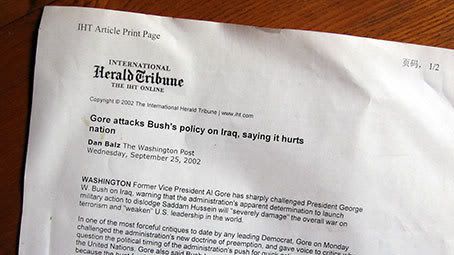I'm not sure how many of you still remember
Napster. Not the Napster paysite as it is today, but its predecessor, the free mp3-sharing website. The site used to enable users to share and download free digital music, and was so successful that it sent Radiohead atop the Billboard, and brought itself a lot of legal trouble, too, and in 2001, Napster had to shut down its service.
That Napster is dead, but its spirit lives on (not in the resurrected paid service). Online P2P music sharing carries on, and the nature of this mass piracy makes it very hard to criminalize anyone (
Fa Bu Ze Zhong, as the old Chinese saying goes). One of the new upstarts in the business is this Coda.fm, which I overheard from
MakeUseOf.com. The admin of Coda.fm openly admits that the service is under legal threats, but says that the site intends to resist the pressure in an attempt to bring about change in the music industry. But the exactly proposition to change is not very clear, or actionable--as long as law makers do not catch the service, it is for the music labels to worry about the possible changes. And according to the interviewed Coda.fm admin, music label is "a middleman that should be gone soon". With this posture, one might reasonably believe that no solution, except for the disappearance of either the labels, or of Coda.fm, will eventually come about before the fragile and embarrassing status quo breaks.
I recently heard of a similar service which goes a bit further in the quest of solutions. The service, called
Xiami, is based in China, where intellectual property rights (especially of those totally intagible goods) are not well exercised. Despite this background, Xiami says, in response to customer request, that they share the download revenue with artists. The business model is one that encourages music upload and P2P sharing by rewards of Xiami web assets (which might be convertible to RMB, according to plan), charges the same web assets for downloads, and facilitates the purchase of Xiami assets with real RMB. Very good model, except that exactly how much is paid to the artist is unknown to the public. And considering that a lot of music shared on the website is foreign based, it is doubtful whether Xiami can guarantee their pay-the-artist model 100%.
A few users fear that the Xiami's model will mean that the legal liability lies entirely with the uploader, and since Xiami does not host any music files, it will abondon its user in potential legal disputes. Many P2P sharing sites are hiding behind the same shield; and as there are too many users (copyright law offenders), legal punishment will become impossible. However, I would say that the case with Xiami is a bit different, as the service may try to directly profit from music sharing activities, making them liable to related accusations. The good things is that once the service is monetized, there will be room for negotiation with music labels, and a mutually acceptable solution will become more likely (compared to Coda.fm). So will they be an explorer in the terra incognita of the future music land? Or are they still pirates as I fear? Maybe they'll end up as a privateer...










